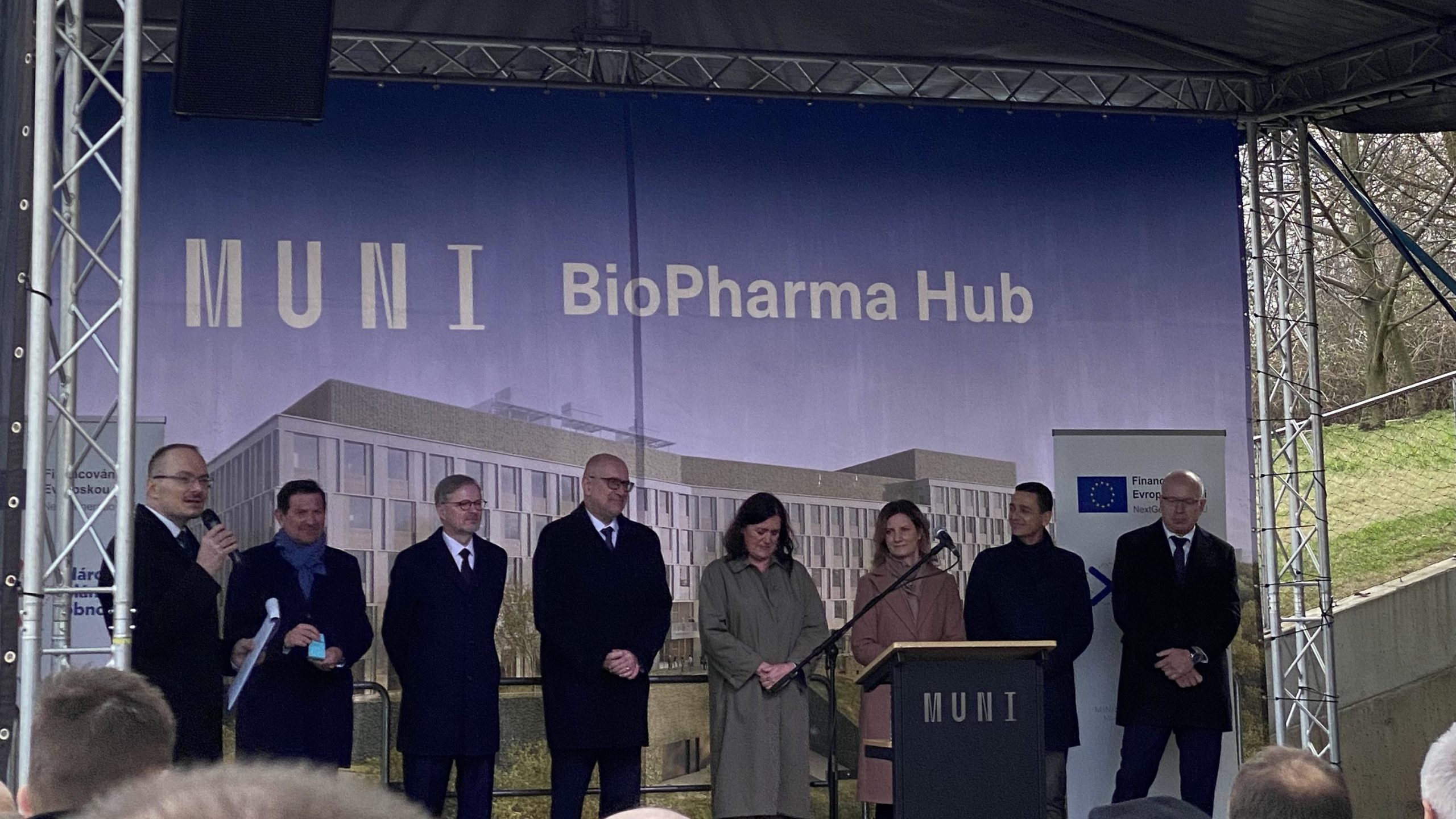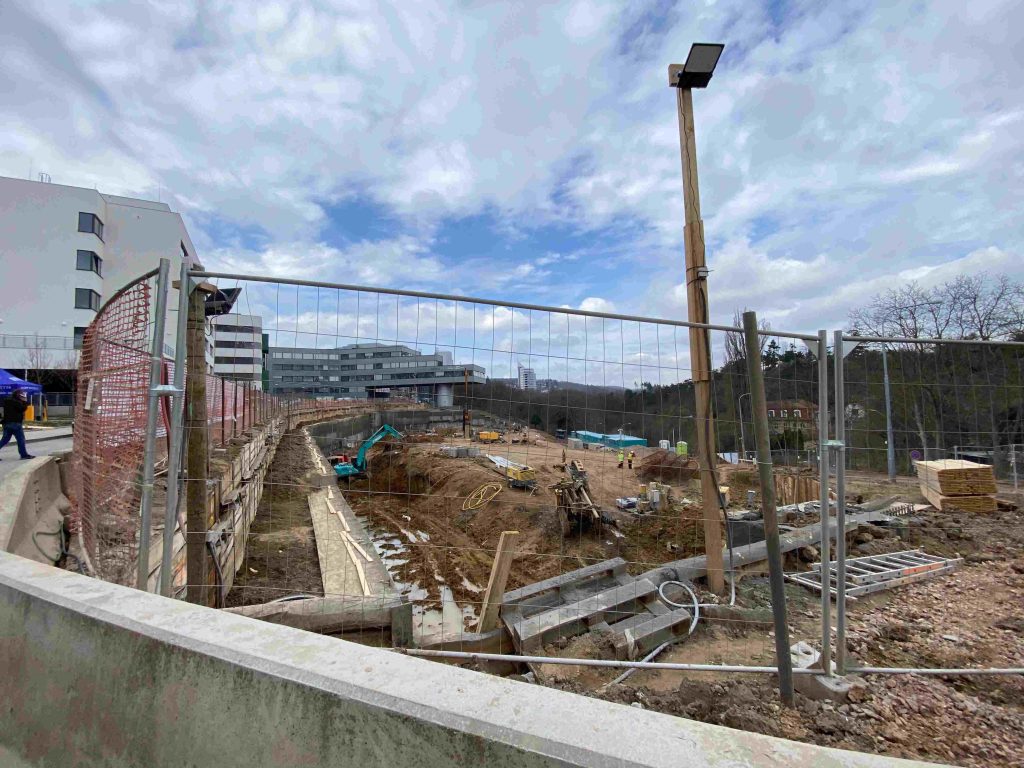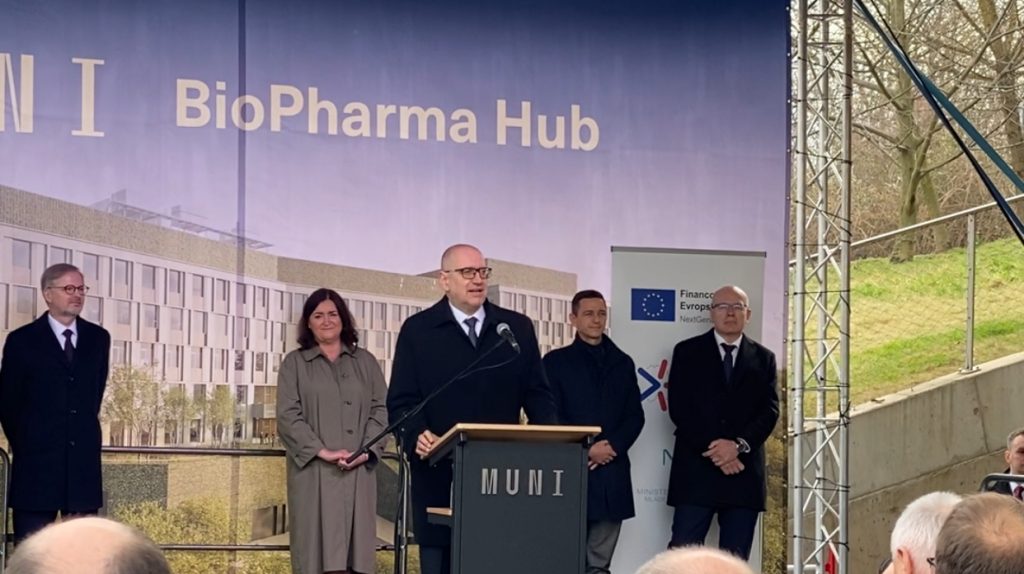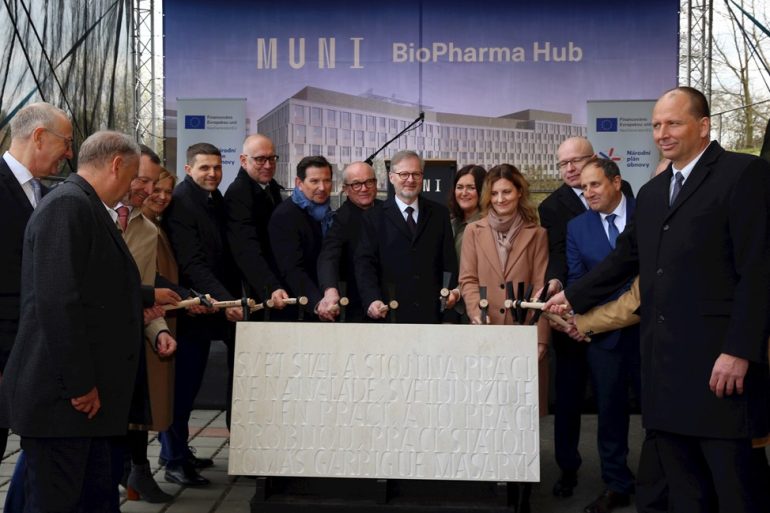Brno’s Masaryk University today ceremonially opened the construction of the BioPharma Hub, a state-of-the-art facility for education and research in pharmacy, molecular biology and related fields, with an estimated cost of over CZK 4 billion.
Construction work has already effectively begun, and today Czech Prime Minister Petr Fiala, along with other representatives of the government, local government and academia, tapped the foundation stone, also coinciding with the celebrations of the university’s 105th anniversary.

The Hub will be the university’s second largest investment, after the adjacent campus in Brno-Bohunice itself. The construction, which actually started last year, will be completed by mid-2026.
The technological equipment will be internationally comparable. The building will house laboratories, a cryobank, tissue culture and genetic modification units, experimental surgery and neurobehavioural experiments, and a pharmacology-toxicology unit.
Scientists will be involved in drug development from synthesis of active ingredients to the production of small clinical batches. Students will also gain direct experience in drug production. The new infrastructure should also bring business opportunities to Brno, especially in the fields of drug production and biotechnological development.
The BioPharma Hub is a strategic project supported by the Czech National Recovery Plan. Fiala (ODS), a former Rector of Masaryk University, said at today’s ceremony that the Hub will contribute to strengthening the Czech Republic as a centre of education, research and innovation.

“It is also of strategic importance because it will link cutting-edge research with the pharmaceutical industry, which we need in Europe so that we are not dependent on suppliers from less secure countries for medicines,” Fiala said.
The Faculty of Pharmacy has been part of Masaryk University since 2020; previously it was part of the Brno Veterinary University. The Czech Republic and the EU are now seeking to strengthen self-sufficiency in drug production. For this, the Czech Republic needs graduates in medicine, pharmacy and other related fields.
“The education of graduates in these fields deserves increased state support, which should take the form of contract financing, where the state, based on a needs analysis, orders from universities the education of the necessary number of experts in key professions to ensure the health and safety of the population and other strategic areas,” said Education Minister Mikulas Bek (STAN).

The university management expects cooperation across disciplines and faculties. “It is an extremely long process before a drug reaches pharmacies. It requires economists and lawyers who will be familiar with the area and will have an overview of what is happening in the pharmaceutical industry,” said Rector Martin Bares.
For this reason, an interfaculty study programme in Applied Health Economics will be established, taught in English by teachers from six faculties. “It should generate future experts for hospitals, insurance companies or regulatory institutions. There is no similar programme in Central Europe,” Bares added.







